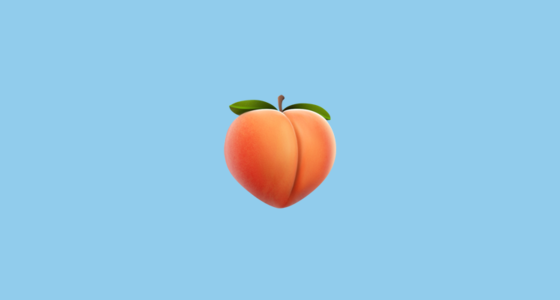My Favorite Secret Social Network

If, for some reason, you join Peach, and you find my handle there, and you add me as a friend — maybe we’re IRL friends, or friends from other social network, or we used to work together, or you know me from here or someplace else — don’t be surprised if I don’t reciprocate your friendship right away.
Being Peach friends is a very special thing, and it doesn’t map neatly onto other kinds of friendship, digital or otherwise. The only way to know if someone is a good Peach friend is if they’ve been a good friend on Peach, which above all means one is supportive, discreet, and chill. The only other way to know if someone is a good Peach friend is if they’re not one of the people you go to Peach to talk about with your discreet, supportive, supremely chill Peach friends.
Confused? Yeah, it’s confusing to me too. The best effort at sorting it out in public so far is by Navneet Alang, who in “Notes on Peach” writes about why a small handful of us love this buggy, unreliable, deeply unpopular social network so much:
Most of all, there is no central feed. Instead, you have to click on each friend’s individual profile, which, first, limits the number of people you want to have on it, and second, makes things weirdly intimate, confessional, like you’re really writing to yourself and other people just happen to read. Of the odd mix that makes up my friend list of about fifteen—a couple of IRL friends, a few pals from Twitter, and a few complete strangers in another country—most use it as a sort of ongoing diary for the things you can’t say elsewhere, a release valve from the glare of Twitter. It is the sort of app where you talk about having a headache, the fact that you’re horny, a memory you have of your father that still fucks you up, and of course, pictures of your dog, mostly to a cobbled-together group of people you’ve never even met who, for some unknown reason, have all agreed not to judge.
I am the sort of person who has posted the following tweets in public, under my government name:
Writing is like sex because there are so many different ways to do it for the wrong reasons and with the wrong people
— Tim Carmody (@tcarmody) August 26, 2017
Writing is like sex in that people say I’m really good at it, but eventually they all decide I’m not worth the trouble
— Tim Carmody (@tcarmody) August 26, 2017
I’m posting them here again because frankly, I don’t think they got enough attention the first time. That’s who I am and what I’m about.
I blush to think at my Peach posts ever being made public. Or even private in a different context.
That’s what Peach is for. It is a place to be real with people who’ve chosen to be real with you. It’s friendly, it’s therapeutic, it’s cathartic. It’s necessary. When it’s not around, those of us who use it go a little bit mad.
We’ve come to lean on confessing out loud. And there are no priests left who can be trusted any more. The only thing we can trust is benign neglect.
Is that the next phase of the web? The web that hardly works, where no one’s paying attention because no one really cares? (Except your friends, including strangers, who somehow care so much?)1
As Bill Callahan wrote, “Everyone’s got their own thing that they yell into a well.”





Stay Connected